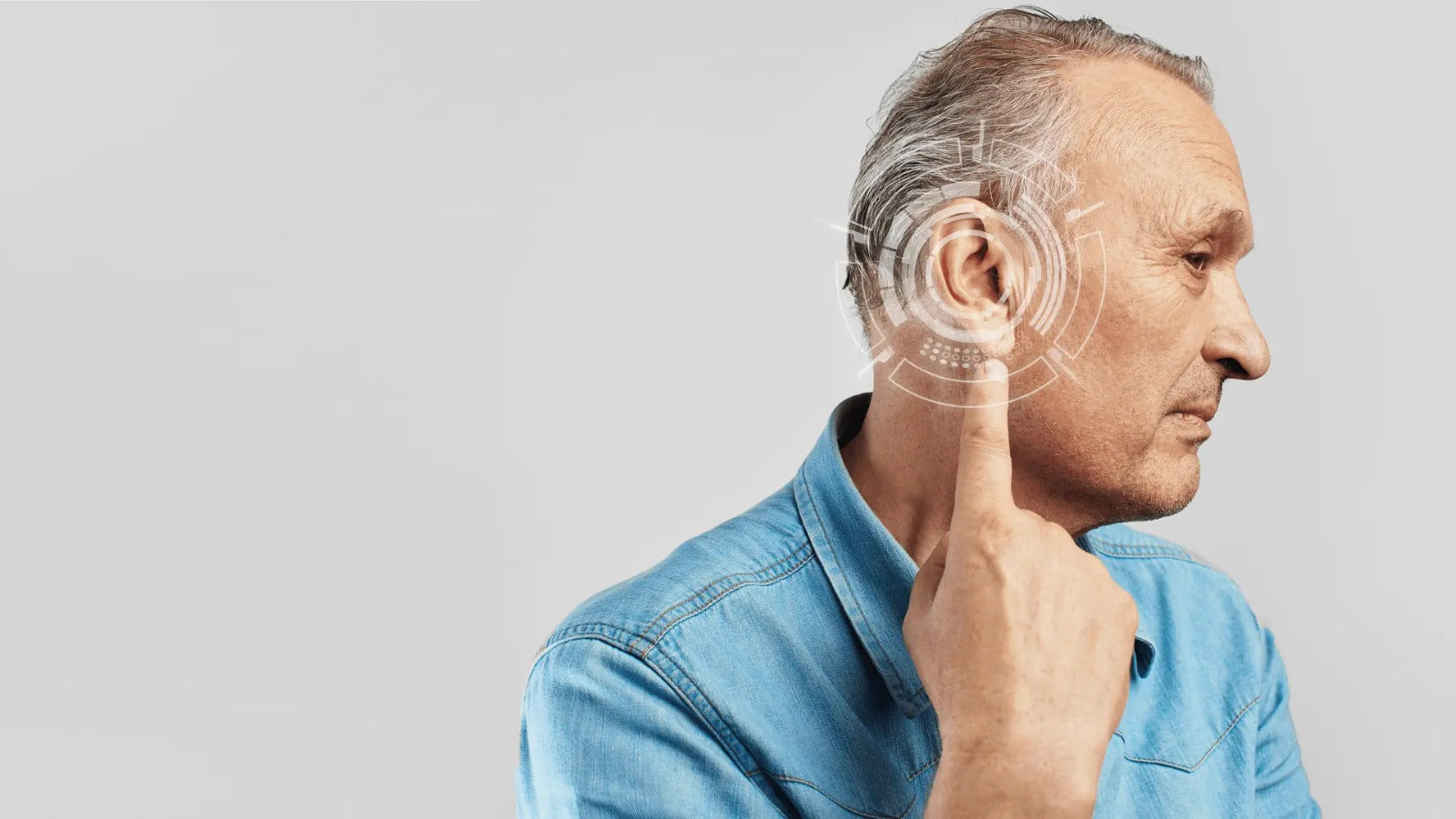Introduction
As a result of advancements in technology, hearing aids have grown more adaptable, less visible, and more useful, even when the wearer is sleeping. The fact that hearing aids are readily available through services such as the National Health Service (NHS) also means that more people may have access to these game-changing equipment. This article will discuss the pros and cons of invisible hearing aids, the benefits of using them while sleeping, and the many solutions that are available through the National Health Service (NHS).
Explore the Wonderful World of Almost Invisible Hearing Aids
Hearing aids that are invisible, also known as hearing aids that are invisible in the canal (IIC), are the tiniest devices now available on the market. Because they are able to be inserted so far into the ear canal, they are nearly impossible to see. Your ear anatomy is taken into consideration throughout the manufacturing process of these devices, which results in a snug but comfortable fit.
The aesthetic subtlety that IIC hearing aids provide is its primary selling point, but they also provide a number of additional advantages. Because of their deep placement and proximity to the eardrum, they are able to take use of the natural acoustics of the ear, which allows them to provide an exceptional sound quality. However, because of their size, they may not be appropriate for people with severe hearing loss, and they may lack some capabilities that are included in bigger devices.
Why Should You Think About Wearing Hearing Aids While You Sleep?
There are certain advantages to continuing to use hearing aids while sleeping, despite the fact that the majority of people take them out before going to bed. Here are five significant advantages:
Being able to hear alarms, emergency phone calls, or pleas for assistance in the middle of the night can be a lifesaver, therefore it's important to train yourself to be aware of such dangers.
Wearing your hearing aids can make it simpler for you to converse during the night, whether it be with a coworker who works the graveyard shift or a sick child who needs your attention.
Sound Therapy: Certain hearing aids designed for those who suffer from tinnitus deliver sound therapy, often known as white noise, which can be calming and enhance the quality of sleep.
Improved Sleep Patterns Some persons, particularly those with substantial hearing loss, report improved sleep patterns when they are able to hear external noises. This is especially true for people who have been deaf from birth.
Convenience: If you are inclined to forget to put your hearing aids in the morning, sleeping with them can help you maintain your routine by keeping you from forgetting to put them in.
Before you go to sleep with your hearing aids in, you should be sure to have approval from your audiologist or another hearing health specialist. They will be able to advise you on the best ways to conduct certain activities, taking into consideration your individual hearing requirements as well as the hearing aids that you wear.
What Kinds of Hearing Aids Are Offered by the National Health Service?
Hearing aids that are digital and fit behind the ear, also known as BTE devices, are provided free of charge by the National Health Service (NHS) in the United Kingdom. These NHS hearing aids come equipped with a variety of capabilities, such as an adjustable volume, directional microphones, telecoil settings for use with loop systems, and different program settings.
On the other hand, the National Health Service (NHS) does not normally provide access to in-the-canal or entirely in-the-canal hearing devices, including invisible hearing aids. In most cases, the only way to get one of these devices, as well as specific characteristics like as Bluetooth connection, is to make a private purchase.
In order to get hearing aids via the National Health Service (NHS), you will need to visit your primary care physician (GP), who will then most likely send you to an NHS audiology department or hearing aid clinic for a comprehensive hearing evaluation.
Conclusion
The world of hearing aids is vast and diverse, offering a variety of options to cater to a wide range of requirements and ways of living. Understanding the benefits, drawbacks, and particulars of each issue is essential, regardless of whether you are contemplating invisible or discreet hearing aids, weighing the advantages of wearing devices while sleeping, or looking for cost-effective choices through the National Health Service (NHS). Always keep in mind that the most important part of your path toward better hearing is maintaining an open discussion with your hearing healthcare professional. You will have the ability to make well-informed decisions regarding your hearing health if you have access to both their experience and this knowledge.
As a result of advancements in technology, hearing aids have grown more adaptable, less visible, and more useful, even when the wearer is sleeping. The fact that hearing aids are readily available through services such as the National Health Service (NHS) also means that more people may have access to these game-changing equipment. This article will discuss the pros and cons of invisible hearing aids, the benefits of using them while sleeping, and the many solutions that are available through the National Health Service (NHS).
Explore the Wonderful World of Almost Invisible Hearing Aids
Hearing aids that are invisible, also known as hearing aids that are invisible in the canal (IIC), are the tiniest devices now available on the market. Because they are able to be inserted so far into the ear canal, they are nearly impossible to see. Your ear anatomy is taken into consideration throughout the manufacturing process of these devices, which results in a snug but comfortable fit.
The aesthetic subtlety that IIC hearing aids provide is its primary selling point, but they also provide a number of additional advantages. Because of their deep placement and proximity to the eardrum, they are able to take use of the natural acoustics of the ear, which allows them to provide an exceptional sound quality. However, because of their size, they may not be appropriate for people with severe hearing loss, and they may lack some capabilities that are included in bigger devices.
Why Should You Think About Wearing Hearing Aids While You Sleep?
There are certain advantages to continuing to use hearing aids while sleeping, despite the fact that the majority of people take them out before going to bed. Here are five significant advantages:
Being able to hear alarms, emergency phone calls, or pleas for assistance in the middle of the night can be a lifesaver, therefore it's important to train yourself to be aware of such dangers.
Wearing your hearing aids can make it simpler for you to converse during the night, whether it be with a coworker who works the graveyard shift or a sick child who needs your attention.
Sound Therapy: Certain hearing aids designed for those who suffer from tinnitus deliver sound therapy, often known as white noise, which can be calming and enhance the quality of sleep.
Improved Sleep Patterns Some persons, particularly those with substantial hearing loss, report improved sleep patterns when they are able to hear external noises. This is especially true for people who have been deaf from birth.
Convenience: If you are inclined to forget to put your hearing aids in the morning, sleeping with them can help you maintain your routine by keeping you from forgetting to put them in.
Before you go to sleep with your hearing aids in, you should be sure to have approval from your audiologist or another hearing health specialist. They will be able to advise you on the best ways to conduct certain activities, taking into consideration your individual hearing requirements as well as the hearing aids that you wear.
What Kinds of Hearing Aids Are Offered by the National Health Service?
Hearing aids that are digital and fit behind the ear, also known as BTE devices, are provided free of charge by the National Health Service (NHS) in the United Kingdom. These NHS hearing aids come equipped with a variety of capabilities, such as an adjustable volume, directional microphones, telecoil settings for use with loop systems, and different program settings.
On the other hand, the National Health Service (NHS) does not normally provide access to in-the-canal or entirely in-the-canal hearing devices, including invisible hearing aids. In most cases, the only way to get one of these devices, as well as specific characteristics like as Bluetooth connection, is to make a private purchase.
In order to get hearing aids via the National Health Service (NHS), you will need to visit your primary care physician (GP), who will then most likely send you to an NHS audiology department or hearing aid clinic for a comprehensive hearing evaluation.
Conclusion
The world of hearing aids is vast and diverse, offering a variety of options to cater to a wide range of requirements and ways of living. Understanding the benefits, drawbacks, and particulars of each issue is essential, regardless of whether you are contemplating invisible or discreet hearing aids, weighing the advantages of wearing devices while sleeping, or looking for cost-effective choices through the National Health Service (NHS). Always keep in mind that the most important part of your path toward better hearing is maintaining an open discussion with your hearing healthcare professional. You will have the ability to make well-informed decisions regarding your hearing health if you have access to both their experience and this knowledge.


